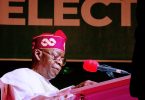English is a notoriously aphonetic language. That is, there is often a vast disconnect between its orthography (i.e., its method of representing sounds by written or printed symbols) and its sound system. No one captured this peculiarity more colorfully than George Bernard Shaw, one of England’s most imaginative writers of all time, who once quipped that it is entirely probable that the word “ghoti” could be pronounced “fish” if you followed some of English’s quirky spelling conventions, by which he meant “gh” could be “f” as it is in the word “tough,” “o” could be “i” as it is in the word “women,” and “ti” could be “sh” as it is in the word “nation.”
But English has got to be the most “misspelled language” in the world, and this is ironically demonstrated by the fact that even the word “misspell” is itself one of the most commonly misspelled words in the English language!
Other commonly misspelled words in the English-speaking (or should say English-writing) world are “truely” (instead of “truly”), “arguement” (instead of “argument”), “playright”(instead of “playwright”), “strenght” (instead of “strength”), “hypocrasy” (instead of “hypocrisy”), etc. With the advent of textese (i.e., the distinctive language and spelling conventions of cellphone text messages) English spelling is taking an even worse turn than previously thought.
It was this realization that persuaded a university lecturer by the name of Ken Smith who teaches in Britain’s Bucks New University to suggest that we should begin to accept frequently misspelled words as legitimate variants. For starters, he says, we should admit the following frequent misspellings into the pantheon of English spelling variants: “ignor,”[ignore] “occured,” [occurred] “thier,” [their] “truely,” [truly] “speach,” [speech] “twelth”[twelfth], “mispelt,” [misspelt], and “varient” [variant].
But it’s easy to see that Smith’s suggestion is a recipe for orthographic anarchy. Plus, to dignify clear spelling errors as “variants” amounts to rewarding laziness and sloppiness And, more importantly, where should it stop once it starts? Who gets to determine what deviations should be rewarded with admission into the pantheon of variants? Should non-native English speakers like Nigerians and Indians normalize their own spelling errors as legitimate variants as well?
Well, I have identified below the 10 commonest misspellings I’ve encountered in Nigerian written English.
1. “Goodluck.” This is probably the most misspelled word in Nigeria today. The reason is obvious: it’s the first name of Nigeria’s current president, Goodluck Jonathan. But there is no word like “goodluck”–or, its other variant, badluck— in the English language; there is only “good luck”–and “bad luck.” Good luck denotes an auspicious state resulting from favorable outcomes, a stroke of luck, or an unexpected piece of good fortune. That someone would be named “Good Luck” (which has now been rendered “Goodluck” in error) is itself evidence of insufficient familiarity with the rules and idiomatic rhythm of the English language.
2. “Defination.” There is no letter “a” in the spelling of that word. Replace the “a” with an “i” to have “definItion.” Related misspelled words are “definAtely” instead of “definitely,” “definAte,” instead of “definIte,” etc.
3. “Alot.” That is not an English word. The closest resemblance to that word in the English language is the phrase “a lot.” Since no one writes “alittle,” “afew,” “abit,” etc, it is indefensible that people write “alot.” But this is a universal spelling error in the English-speaking world; it is not limited to Nigerians. Other cousins of this spelling error are “Infact” instead of “in fact” and “inspite” instead of “in spite.”
4. “Loose/lose.” Many Nigerians use the word “loose” when they actually mean to write “lose.” Loose is commonly used as an adjective to denote the state of not being tight (as in: loose clothes). Other popular uses include the sense of being casual and unrestrained in sexual behavior (as in: loose women), lacking a sense of restraint or responsibility (as in: “Goodluck Jonathan’s loose tongue”). Although “loose” can sometimes be used as a verb, “loosen” is the preferred word to express the sense of making something less tight or strict. “Lose,” on the hand, is to cease to have, or to fail to win, or suffer the loss of a person through death, etc. A safe bet is to choose to err on the side of “lose” when you want to express an action.
5. “Priviledge.”
There is no “d” in the spelling of that word. It’s spelled “privilege.”
6. “Nonchallant.” It’s actually spelled with only one “l.” Unfortunately, even news reports in Nigerian newspapers habitually spell the word with double “l.” I wonder if they’ve disabled their spell check.
7. “Grammer.” There is no “e” in the word. Replace the pesky “e” with an “a” to have “grammAr.” I’ve read posts on Nigerian Internet discussion forums and on Facebook railing against “bad grammer”! Well, if you feel sufficiently concerned about bad grammar to write about it, you’d better damn well know how to spell grammar! To be fair, this misspelling isn’t exclusively Nigerian, but its regularity in popular writing in Nigeria qualifies it as a candidate for this list. The people I have a hard time forgiving are those who attend or attended secondary schools with “grammar school” as part of their names (such as my old secondary school, which is called Baptist Grammar School) but spell “grammar” with an “e.” I see that a lot on Facebook. Such people deserve to be stripped of the certificates they got from their high schools!
8. “Proffessor.” The name for the highest ranking position for a university academic (in British usage) and any full-time or part-time member of the teaching staff of a university (in American usage) is never spelled with double “f.” It’s correctly spelled “professor.” So if “proffessor” is wrong, “proff” is equally wrong. The British and Canadian colloquial abbreviation for “professor” is “prof.”
9. “Pronounciation.”
Although the verb form of this word is “pronounce,” it changes to “pronunciation” when it nominalizes, that is, when it changes into a noun. Note that there is no “o” after the first “n” in the word.
10. “Emanciated.” It should correctly be spelled “emaciated.” There is no “n” in the word. This widespread spelling error in Nigerian written English is the direct result of the way we (mis)pronounce the word. An “n” sound almost always intrudes on our pronunciation of the word, much like it does in our pronunciation of “attorney,” so that most Nigerians say “antoni-general” of the federation. A related misspelling is “expantiate.” It should be “expatiate.” There is no “n” after the first “a.”
Farooq Kperogi is a Nigerian academic, media scholar, public speaker and newspaper columnist. As a former journalist, Kperogi had been a reporter and news editor at many Nigerian newspapers including the Daily Trust, Daily Triumph and the now defunct New Nigerian.









Hi, you have a Brocken links I have created a content piece that will fix it, it will be very nice if you links to my link
pretty cool post. It’s really very nice and useful post. keep it up !